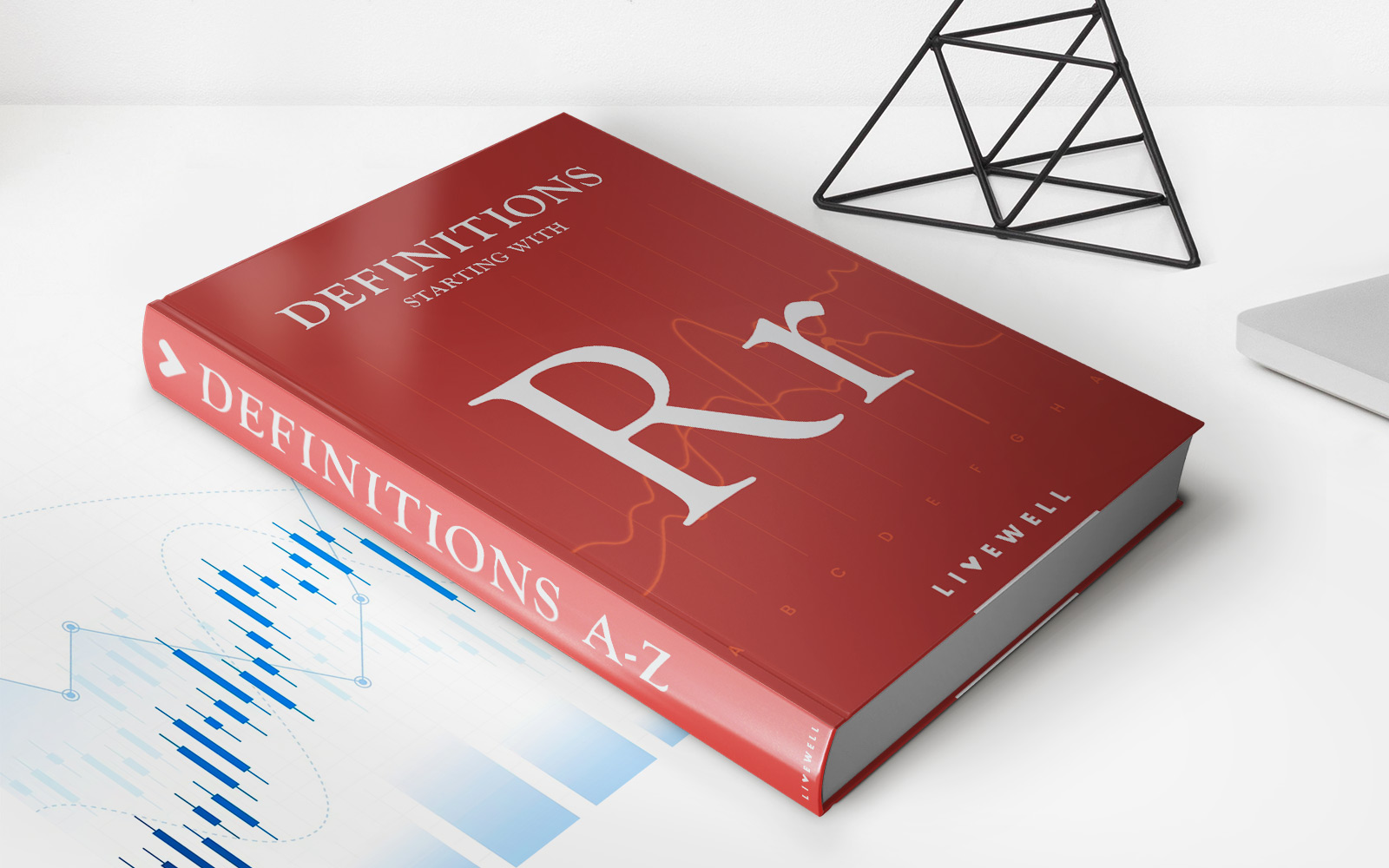

Finance
What Is A Warranty In Insurance?
Published: November 18, 2023
Find out what a warranty in insurance is and how it relates to finance. Learn about the benefits and limitations of warranties in the insurance industry.
(Many of the links in this article redirect to a specific reviewed product. Your purchase of these products through affiliate links helps to generate commission for LiveWell, at no extra cost. Learn more)
Table of Contents
- Introduction
- Definition of a Warranty in Insurance
- Importance of Warranties in Insurance
- Types of Warranties in Insurance
- Warranty Clauses in Insurance Policies
- Common Examples of Warranties in Insurance
- How Warranties Affect Insurance Claims
- The Role of Underwriters in Reviewing Warranties
- Guidelines for Fulfilling Warranties in Insurance
- Consequences of Breaching a Warranty in Insurance
- Conclusion
Introduction
Welcome to the world of insurance, where policies are packed with various terms and conditions. One important aspect of insurance contracts is warranties. But what exactly is a warranty in insurance? In simple terms, a warranty is a specific requirement or condition that must be fulfilled by the insured party in order to maintain coverage under an insurance policy. It acts as a safeguard for the insurer and sets certain expectations for the insured regarding their behavior or the condition of the insured item.
Warranties in insurance play a critical role in determining the validity of claims and ensuring that both parties involved, the insurer and the insured, adhere to their obligations. Understanding the concept of warranties is crucial for anyone looking to secure insurance coverage or file a claim.
In this article, we will delve into the depths of warranties in insurance, exploring their definition, types, clauses, and consequences of breaching them. We will also discuss the importance of warranties and the role that underwriters play in reviewing and assessing compliance with these conditions. So, whether you are a policyholder, an insurance professional, or simply curious about the intricacies of insurance contracts, let’s unravel the mysteries of warranties in insurance.
Definition of a Warranty in Insurance
In the context of insurance, a warranty is a specific provision or condition that is included in an insurance policy. It is a guarantee made by the insured party to the insurer, stating that certain facts, actions, or conditions will be maintained throughout the life of the policy. These warranties serve to minimize the risk for the insurer and to ensure that the insured behaves in a particular way or maintains a specific condition to be eligible for coverage.
Unlike representations, which are statements of fact made during the application process, warranties are considered fundamental to the insurance contract. They are typically included in the policy document and are legally binding once the policy is in effect. Failure to comply with the terms stated as warranties may lead to the denial of claims or even the nullification of the entire policy.
Warranties in insurance can be categorized into two types: affirmative warranties and promissory warranties. Affirmative warranties require the insured to confirm the accuracy of certain facts or assertions at the time of entering into the insurance contract. Promissory warranties, on the other hand, require the insured to promise certain conduct or actions throughout the duration of the policy.
For example, in the case of a marine insurance policy, an affirmative warranty may require the insured to confirm that a vessel is seaworthy at the time of policy inception. A promissory warranty, on the other hand, may require the insured to promise that the vessel will be maintained in a seaworthy condition throughout the policy term.
It is important to note that warranties must be strictly complied with for the policy to remain in effect. Even a slight breach of a warranty can have serious consequences, as it is considered a material term of the insurance contract. However, some jurisdictions may allow for deviation from warranties if the breach did not increase the risk insured or if it was unintentional and had no impact on the loss that occurred.
Now that we have a clearer understanding of what warranties in insurance are, let’s explore their importance and why they are included in insurance policies.
Importance of Warranties in Insurance
Warranties play a crucial role in the realm of insurance, serving both the insurer and the insured. They are included in insurance policies for several important reasons:
- Risk Mitigation: Warranties are designed to minimize the insurer’s exposure to risk. By imposing certain conditions and requirements on the insured, the insurer can better assess and manage the risks associated with providing coverage. This helps in maintaining a fair and balanced insurance market.
- Evaluating Premiums: Warranties allow the insurer to accurately calculate premiums based on the risk associated with a particular policy. If the insured party satisfies the warranty conditions, it indicates a lower risk and may result in more favorable premium rates. Conversely, if the insured fails to meet the warranty requirements, it indicates a higher risk and may lead to higher premiums.
- Encouraging Prudent Behavior: Warranties promote responsible behavior on the part of the insured. By specifying certain actions or conditions that the insured must adhere to, warranties incentivize the insured to take necessary precautions and maintain safe practices. For example, a warranty may require regular maintenance of a property, reducing the likelihood of accidents or damage.
- Ensuring Accurate Information: Warranties help ensure that the information provided by the insured is accurate and complete. When an insured party confirms the accuracy of certain facts or makes promises regarding their conduct, it provides the insurer with a higher level of confidence in assessing the risk and underwriting the policy.
- Protecting the Insurer’s Interests: Warranties act as safeguards for the insurer, protecting their interests and preventing fraudulent claims. By clearly defining the obligations of the insured, warranties provide a basis for denying claims if the insured fails to meet their contractual obligations. This helps maintain the integrity of the insurance industry and prevents misuse or abuse of the insurance system.
Overall, warranties are essential components of insurance contracts. They help ensure fairness, accuracy, and compliance in the insurance process while allowing insurers to assess and manage risks effectively. Understanding and fulfilling warranties is of utmost importance for policyholders to maintain coverage and for insurers to evaluate claims accurately. Next, let’s explore the different types of warranties that can be found in insurance policies.
Types of Warranties in Insurance
Warranties in insurance can take various forms, depending on the type of policy and the specific requirements of the insurer. Here are some common types of warranties that you may come across in insurance contracts:
- Affirmative Warranties: These warranties require the insured to confirm the accuracy of certain facts or assertions at the time of entering into the insurance contract. For example, in a health insurance policy, the insured may be required to confirm that they do not have any pre-existing medical conditions.
- Promissory Warranties: Promissory warranties, often referred to as continuing warranties, require the insured to promise certain conduct or actions throughout the duration of the policy. For instance, in an automobile insurance policy, the insured may promise to maintain a valid driver’s license and report any accidents or tickets to the insurer.
- Basis of the Contract Warranties: These warranties are considered to be the foundation of the insurance contract. They state that the truth of the statements made in the insurance application serves as a warranty. If any statement in the application is untrue, the insurer has the right to void the policy from its inception.
- Suspensive Warranties: Suspensive warranties suspend the insurance coverage until certain conditions are met. For example, in a property insurance policy, there may be a warranty that the insured property has a sufficient security alarm system installed. If the alarm system is not in place, the coverage may be suspended until it is installed.
- Express Warranties: Express warranties are explicitly stated in the insurance policy document. They are agreed upon by both parties and form an integral part of the contract. These warranties may include specific actions that the insured must perform or maintain to ensure coverage.
It’s important to carefully review the insurance policy to identify any warranties that may be included. Understanding the type of warranty and the specific obligations they entail is crucial for the insured to comply with the requirements and maintain coverage. The inclusion of warranties in insurance policies helps protect the interests of both the insured and the insurer. In the next section, we will explore warranty clauses and their significance in insurance policies.
Warranty Clauses in Insurance Policies
Warranty clauses are specific provisions within an insurance policy that outline the requirements or conditions that the insured must fulfill in order to maintain coverage. These clauses serve to clarify the responsibilities and obligations of the insured, as well as the consequences of failing to meet those obligations. Here are some key points to understand about warranty clauses in insurance policies:
Clear and Specific Requirements: Warranty clauses clearly state what actions, conditions, or representations the insured must adhere to in order to ensure coverage. These requirements can range from maintaining security measures for property insurance to disclosing accurate information for health insurance policies.
Contractual Obligations: Warranty clauses in insurance policies are considered fundamental terms of the contract. The insured is legally bound to fulfill the obligations outlined in the warranties. Failure to do so can result in serious consequences, such as the denial of a claim or even the cancellation of the policy.
Breach of Warranty: If the insured fails to meet the requirements outlined in the warranty clauses, it is considered a breach of warranty. A breach can occur if the insured intentionally fails to fulfill the obligation, or even if there is an unintentional or accidental non-compliance. Any breach, regardless of intent, can impact the insured’s ability to make a successful claim.
Materiality of Breach: In some jurisdictions, the materiality of a breach is considered when assessing the impact on coverage. If the breach is considered insignificant or if it has no impact on the loss that occurred, the insurer may still honor the claim. However, if the breach is significant and affects the risk being insured, the insurer may deny the claim.
Consequences of Breach: The consequences of breaching a warranty can vary depending on the terms of the policy and the jurisdiction. In some cases, a breach may result in the denial of a claim for the specific loss associated with the breach. In more severe cases, a breach can lead to the nullification of the entire policy, resulting in the loss of coverage for all claims, regardless of their nature.
Importance of Reviewing Policy Language: It is crucial for policyholders to thoroughly review the warranty clauses in their insurance policies. By understanding the specific obligations and requirements, the insured can ensure compliance and avoid unnecessary complications in the event of a claim.
Warranty clauses are essential components of insurance policies that outline the responsibilities of the insured. They should not be taken lightly, as failure to fulfill the obligations outlined in these clauses can have serious consequences. In the next section, we will explore common examples of warranties in insurance to provide a better understanding of how they are applied in different types of policies.
Common Examples of Warranties in Insurance
Warranties in insurance can vary greatly depending on the type of policy and the specific requirements of the insurer. Here are some common examples of warranties that are often found in insurance policies:
- Property Insurance: In property insurance policies, there may be warranties related to security measures. For example, the insured may be required to install and maintain a specific type of burglar alarm system or fire suppression system to minimize the risk of theft or property damage.
- Health Insurance: In health insurance policies, warranties may include disclosing accurate information about pre-existing medical conditions or lifestyle factors that may impact the insured’s health. The insured may be required to disclose any ongoing treatments or medications they are currently receiving.
- Automobile Insurance: Warranties in automobile insurance policies may involve the insured’s driving behavior and responsibilities. For instance, the insured may be required to promise that they will not allow any unauthorized drivers to operate the insured vehicle or that they will report any accidents or traffic violations to the insurer.
- Life Insurance: In life insurance policies, warranties can include providing accurate and up-to-date information about the insured’s health, occupation, and lifestyle choices. For example, the insured may warrant that they do not engage in high-risk activities such as skydiving or deep-sea diving.
- Marine Insurance: Warranties in marine insurance policies often revolve around the seaworthiness of the vessel. The insured may be required to warrant that the vessel is in good condition, properly maintained, and equipped with necessary safety equipment.
It is important for policyholders to carefully review their insurance policies to identify and understand the specific warranties that are applicable to their coverage. It is crucial to comply with these warranties to maintain coverage and ensure the validity of any future claims.
Now that we have explored common examples of warranties in insurance, let’s move on to discussing how warranties can impact insurance claims.
How Warranties Affect Insurance Claims
Warranties in insurance play a significant role in the claims process. The fulfillment or breach of a warranty can directly impact the insured’s ability to make a successful claim. Here’s how warranties affect insurance claims:
Strict Compliance Requirement: Warranties must be strictly complied with for a claim to be valid. If the insured fails to meet the requirements outlined in the warranty, the insurer may deny the claim. It is essential for policyholders to understand and fulfill their obligations to ensure their claims are not jeopardized.
Impact on Coverage: Breaching a warranty can have far-reaching consequences on coverage. If the breach is deemed material, the insurer may deny the claim for the specific loss associated with the breach. This means that even if the claim is unrelated to the breach, it may still be denied. In some cases, a breach may even result in the nullification of the entire policy, leaving the insured without any coverage.
No Retroactive Compliance: Generally, compliance with a warranty must occur prior to the loss or incident that triggers the claim. Retroactive compliance is usually not accepted by insurers. This means that fulfilling the warranty requirements after the loss occurs will not validate a claim that would otherwise be denied due to the initial breach.
Impact on Policy Renewal: Breaching a warranty in an insurance claim can have long-term consequences. Insurers take into account the insured’s compliance history when deciding whether to renew the policy. A history of breaches may result in higher premiums or even a denial of policy renewal.
Exceptions and Mitigating Factors: While warranties are typically enforceable, some jurisdictions may consider exceptions or mitigating factors when assessing the impact of a breach on a claim. Factors such as unintentional or accidental breaches or breaches that have no bearing on the loss incurred may be taken into account. However, it is important to consult the specific policy terms and local laws to understand how exceptions and mitigating factors may apply.
It is crucial for policyholders to understand the warranties outlined in their insurance policies and take steps to fulfill their obligations. By doing so, they can maximize their chances of a successful claim and avoid any unnecessary complications or denials. The role of underwriters in reviewing warranties is also crucial, as we will explore in the next section.
The Role of Underwriters in Reviewing Warranties
Underwriters are the key players in the insurance industry responsible for assessing risks and determining the terms and conditions of insurance policies. When it comes to warranties, underwriters play a vital role in reviewing and evaluating the compliance of these conditions. Here’s an overview of the role of underwriters in reviewing warranties:
Assessing Risk: Underwriters analyze the risk associated with insuring a particular individual or asset. They review the warranty clauses in the insurance policy to determine the level of risk involved and ensure that the insured party’s obligations are clearly stated and manageable.
Evaluating Compliance: Underwriters review the information provided by the insured during the underwriting process and assess the compliance of the warranties. They verify that the insured has fulfilled the specified requirements and promises made in the warranties.
Identifying Red Flags: Underwriters look for any potential red flags or discrepancies that may indicate a breach of warranty. They may request additional information or documentation to ensure compliance or may consult external sources to verify the accuracy of the insured’s statements.
Setting Premiums and Coverage Terms: Based on their assessment of the warranties, underwriters determine the appropriate premium rates and coverage terms. If the insured has a history of breaching warranties or poses a higher risk, the underwriter may adjust the premium or impose additional conditions to mitigate potential losses.
Safeguarding the Interests of the Insurer: Underwriters have a responsibility to protect the interests of the insurer. They ensure that the warranties are clear and enforceable, reducing the potential for fraudulent claims or disputes. Underwriters play a crucial role in maintaining the integrity of the insurance industry.
Providing Guidance and Advice: Underwriters may offer guidance and advice to the insured regarding the fulfillment of warranties. They can provide insights on risk management practices or offer recommendations to help the insured comply with the requirements and maintain coverage.
Underwriters are the gatekeepers of the insurance industry, ensuring that the warranties in insurance policies are fair, reasonable, and enforceable. Their expertise in assessing risk and evaluating compliance with warranties helps insurers make informed decisions in providing coverage. However, it’s important for policyholders to understand their own obligations and take proactive measures to comply with the warranties outlined in their policies.
Next, let’s discuss some guidelines for policyholders to fulfill their warranty obligations in insurance.
Guidelines for Fulfilling Warranties in Insurance
Fulfilling the warranty requirements in an insurance policy is crucial for maintaining coverage and ensuring the validity of any future claims. Here are some guidelines to help policyholders fulfill their warranty obligations:
- Review the Policy: Carefully read your insurance policy, paying close attention to the warranty clauses. Understand the specific obligations and requirements you need to fulfill to maintain coverage.
- Comply with Requirements: Take proactive steps to comply with the warranty requirements. This may include implementing security measures, conducting regular maintenance, or providing accurate information about your circumstances.
- Keep Documentation: Maintain records and documentation that prove your compliance with the warranty obligations. This can include receipts for security systems, maintenance logs, or any other relevant documents that demonstrate your adherence to the requirements.
- Seek Guidance: If you have any doubts or concerns about the warranty obligations, reach out to your insurance provider or agent for clarification. They can provide guidance and advice on how to fulfill the requirements correctly.
- Regularly Review and Update: Periodically review your policy and warranty obligations. Ensure that any changes in circumstances are promptly reported to your insurer. This can include changes in property conditions, lifestyle factors, or health-related information.
- Keep Open Lines of Communication: Maintain open and transparent communication with your insurance provider. Inform them about any changes or incidents that may impact your compliance with the warranty obligations.
- Take Preventive Measures: Take proactive measures to minimize the risk of loss or damage covered by the policy. This can include maintaining a safe environment, implementing proper safety protocols, or seeking professional advice to mitigate potential risks.
- Review Claims Denials: If a claim is denied due to a perceived breach of warranty, carefully review the denial letter and the specific policy provisions. Seek legal advice if necessary to determine if the denial is justified or if there are grounds for dispute.
Remember, strict compliance with warranty obligations is essential in insurance. Failure to fulfill these requirements can lead to claim denials or even the nullification of the entire policy. By following these guidelines, policyholders can ensure that their obligations are met and that they are in a strong position to obtain coverage when needed.
In the next section, let’s explore the consequences of breaching a warranty in insurance.
Consequences of Breaching a Warranty in Insurance
Breaching a warranty in insurance can have serious and far-reaching consequences. It is essential for policyholders to understand the potential outcomes of such breaches. Here are the key consequences of breaching a warranty in insurance:
- Denial of Claim: If a breach of warranty occurs and is deemed material, the insurer may deny the claim. This means that the insured will not receive any compensation for the specific loss associated with the breach, even if the claim is unrelated to the breach itself.
- Loss of Coverage: In more severe cases, breaching a warranty can result in the nullification of the entire policy. This means that the insured will lose coverage not only for the claim associated with the breach but also for any future claims, regardless of their nature.
- Policy Voidance: The insurer may have the right to void the policy entirely if a breach of warranty occurs. Policy voidance means that the contract is considered null and void from the beginning, as if it never existed. In such cases, the insurer may refund the premium paid, but the insured will lose all coverage.
- Premium Adjustment: Breaching a warranty can also lead to changes in the premium rates. If a breach occurs, the insurer may choose to adjust the premium upward to reflect the increased risk associated with the insured’s non-compliance.
- Impact on Future Coverage: Breaching a warranty can have consequences for future insurance coverage. Insurers may consider a policyholder’s history of breaches when deciding whether to renew a policy or provide coverage for future needs. A history of breaches may result in higher premiums or even a denial of coverage altogether.
- Legal Implications: In certain cases, breaching a warranty may have legal repercussions. If the breach results in financial harm or other damages, the insurer or other parties affected by the breach may pursue legal action against the insured for breach of contract.
It is vital for policyholders to carefully review the warranty clauses in their insurance policies, understand their obligations, and take necessary steps to fulfill those obligations. By doing so, policyholders can avoid the detrimental consequences of breaching a warranty and maintain proper insurance coverage.
Now that we have explored the consequences of breaching a warranty in insurance, let’s conclude the article.
Conclusion
Understanding the concept and significance of warranties in insurance is crucial for both insurers and policyholders. Warranties serve as vital components of insurance contracts, outlining specific requirements and conditions that must be met by the insured. Compliance with these warranties is essential to maintain coverage and ensure the validity of insurance claims.
Throughout this article, we have explored the definition of warranties in insurance, their importance, types, and the impact they have on insurance claims. We have also discussed the role of underwriters in reviewing warranties and provided guidelines for policyholders to fulfill their warranty obligations.
It is vital for policyholders to thoroughly review their insurance policies, understand the specific warranty requirements, and take proactive measures to comply with them. Failure to fulfill these obligations can lead to claim denials or even the nullification of the entire policy, resulting in loss of coverage and potential legal consequences.
For insurers, ensuring clear and enforceable warranty clauses, along with thorough underwriting processes, is essential to protect their interests and maintain the integrity of the insurance industry.
In conclusion, warranties in insurance act as safeguards and guidelines for both insurers and policyholders. By understanding and fulfilling warranty obligations, policyholders can maintain coverage and secure financial protection, while insurers can appropriately assess and manage risks. It is the responsibility of all parties involved to adhere to the terms and conditions of insurance policies and ensure compliance with warranties for a harmonious and effective insurance relationship.














